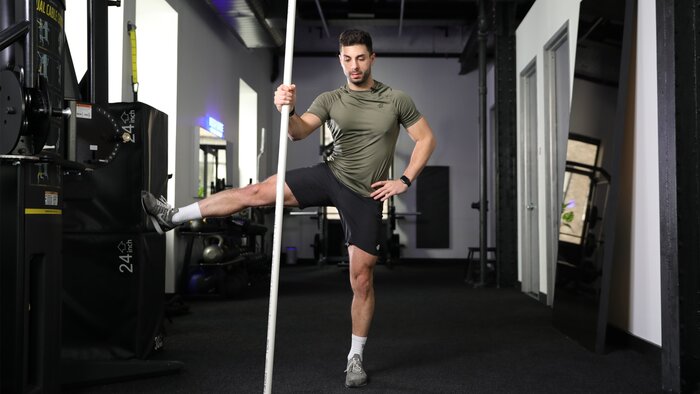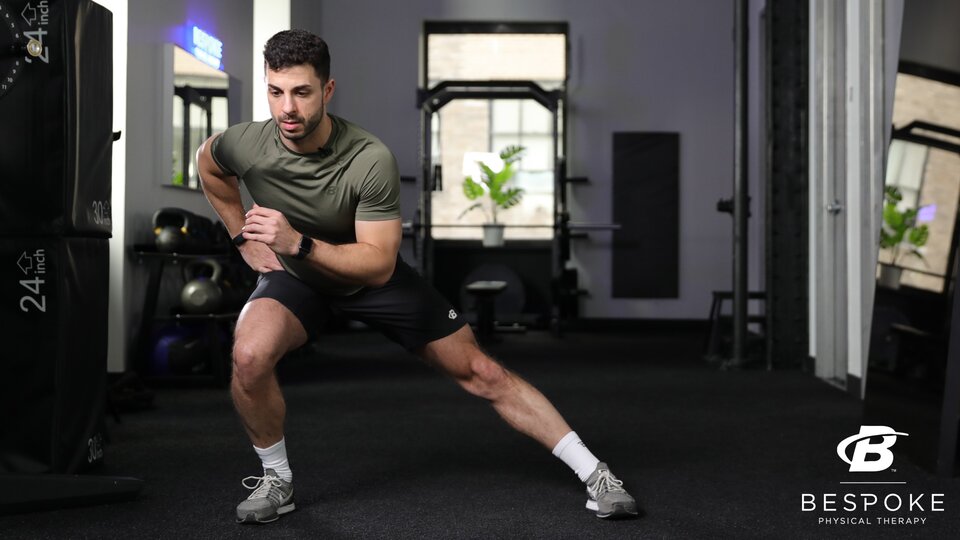Ideally, we warm up prior to a run in order to prepare our body and decrease our risk of injury. This consists of increasing blood flow to the proper muscles, activating them in order to increase our human performance, and get the most out of each run. A dynamic warm up is a type of routine that involves moving your body through a full range of motion to prepare your muscles for the physical demands of running.
Dynamic stretches are generally more effective at warming up muscles compared to static stretches, which involve holding a stretch for an extended period of time.Research shows that static stretching prior to activity may in fact decrease our force output, hence decreasing our overall human performance (1). Other research has concluded that dynamic stretching prior to activity has been shown to improve our human performance by having a positive influence on our power, speed, agility, strength, endurance, and aerobic capacity (2). This research supports the use of the dynamic warm up prior to your run in order to optimize your human performance without affecting your force output in a negative way.

The smartest and most efficient warm up for you is one that gives your body a chance to loosen up, gradually increases your blood flow and heart rate, and prepares you for the intended sport. As a runner, it is extremely important that you warm up and here are some ways to do that:
Use foam rolling: Foam rolling can be an effective way to warm up by decreasing tension and increasing blood flow. Roll over the muscles you’ll be using during your run, paying extra attention to any areas that feel tight or sore. Stick to 30 seconds of foam rolling per muscle group experiencing tightness as a warmup.
Start with a gentle jog or walk: Begin by jogging or walking at an easy pace for a few minutes. This helps to gradually increase your heart rate and blood flow, and get your muscles warm.
Dynamic Stretching: Dynamic stretches involve moving your body through a full range of motion and are more effective at warming up muscles than static stretches. Focus on the muscles you’ll be using during your run. (Perform 10 ea / 1x)
- High Knee Pull w Heel Raise
- Quad Pull
- Glute Pull
- Hamstring Scoop
- Side Lunge Rocks
- BO T/S Rotations
- Leg Swings (Hamstrings)
- Leg Swings (Inner)
- Reverse w Side Bend
- Pogos
Tip: Unsure on how to execute these stretches? Check out the BodyFit program where we break it down for you: Bespoke Physical Therapy: Dynamic Running Warmup Series
Gradually increase intensity: As you progress through your warmup, gradually increase the intensity of your movements. This can involve increasing your speed, adding in short sprints or hill climbs, or incorporating plyometric exercises such as jump squats or lunges.
Once you finish your dynamic stretch, begin by walking, jogging, strides (~25m x 5) and then running.
In summary, a dynamic running warmup is an important part of any runner’s pre-run routine. It helps prepare the body for the physical demands of running by gradually increasing heart rate, blood flow, and muscle temperature, and can improve performance and reduce the risk of injury. Dynamic stretches are particularly effective at warming up muscles, and can be incorporated into your warmup routine.
Don’t skip the cool down: After your run, be sure to take a few minutes to cool down by gradually decreasing your intensity and stretching out your muscles. This can help reduce muscle soreness and improve recovery.
References:
